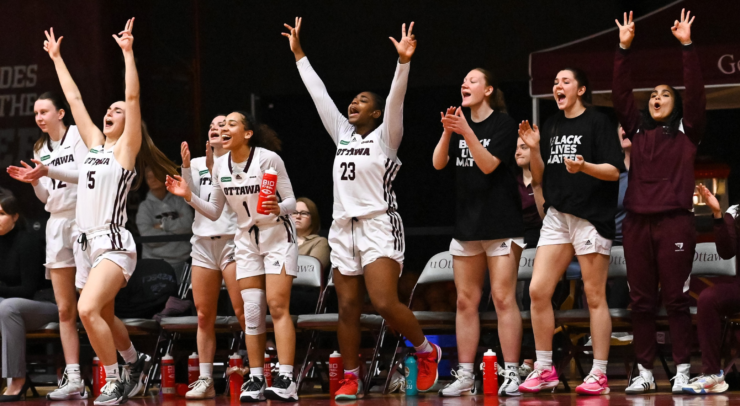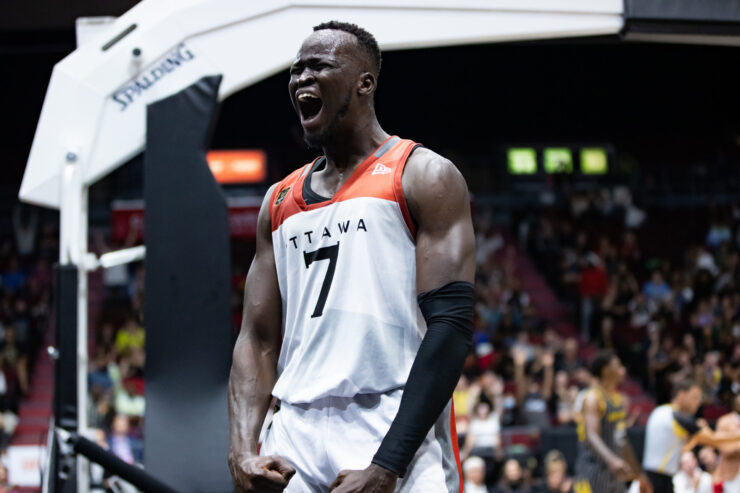U of O anthropology research groups takes a closer look at sports
Going to the biggest game of the year for any sport can be incredibly fun and exciting. Players whiz across a field, court, or rink, and play for the glory of a big win.
Yet, one University of Ottawa student would have you think critically about the nature of those sports, and take a closer look at what goes into them — by watching documentaries.
On Nov. 21, Lucas Mollame, a fourth-year anthropology student, and a team member of CAM/MAC (Multimedia Anthropology Collaboratory), hosted the third iteration of a film series that is hoping to take a critical look at aspects of sports that most people might otherwise take for granted.
CAM/MAC is a research group for students and faculty members of the U of O anthropology department who are conducting fieldwork that incorporates things like media culture, forms, and images.
“The professor that I work with … allows the students that work with her to (have) free (rein), and allow them to really do things that they want to do with the lab,” explained Mollame. “I chose sports, specifically, (because) that’s something I’m really interested in.”
Wednesday’s movie, At All Costs, was a documentary that followed the lives of high-school-aged boys in America playing basketball for the American Athletic Union (AAU) — a summer program that pushes teenagers to prepare for college basketball prospects.
“I think, (that) looking at the multi-dimensional aspect of being an athlete, and what it means to be an athlete contemporarily, is the kind of space that I want to explore as an anthropology student,” Mollame continued.
“(I am) challenging my own fandom a little bit — trying to look critically at these spaces that I enjoy and that I’m a part of — and, also too that can be exploitive, as we’ve seen in this film particularly.”
The films screening drew a small crowd, which Mollame attributes to the nature of what he is hoping to do, and a general lack of exposure on campus. “Unfortunately, I just think that a lot of people don’t know of us … we are a fledgling lab.”
Nevertheless, the other students that attended expressed interest in what they saw. Following the documentary, the students in attendance had a brief discussion about the nature of the AAU.
“My takeaway is that I didn’t know about the AAU, at all,” Lee Tanner, a fourth-year international development and modernization student, told the Fulcrum. “I kind of knew a little bit about it, but I didn’t know that it had that much of (an) impact on the kids, and how rigorous it is every summer.”
Samantha Featherstone, one of the other attendees of the screening, and a fourth-year international studies and modern languages student, agreed with Tanner’s sentiment, and told the Fulcrum that she thinks that documentaries provide a unique medium for this type of debate. “You always … learn something, and are a little bit inspired.”
For Mollame, he hopes that students continue to attend, and learn from the film screening that CAM/MAC holds.
“Obviously, watching the film … is an enjoyable experience, but (I’d recommend that students) come with a critical eye (and) to question what (they) are watching — not just in terms of content, but in the way that the director, camera operator, so on and so forth, is presenting the documentary too,” he said. “If those questions don’t get answered, then that’s something that we can challenge.”
Next up, the anthropology research group will be screening Generation Iron 2 on Wednesday Nov. 28 from 7-10 p.m.. Find out more about the group’s upcoming events on their Facebook page.






